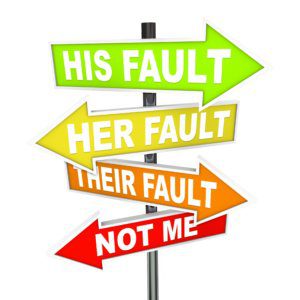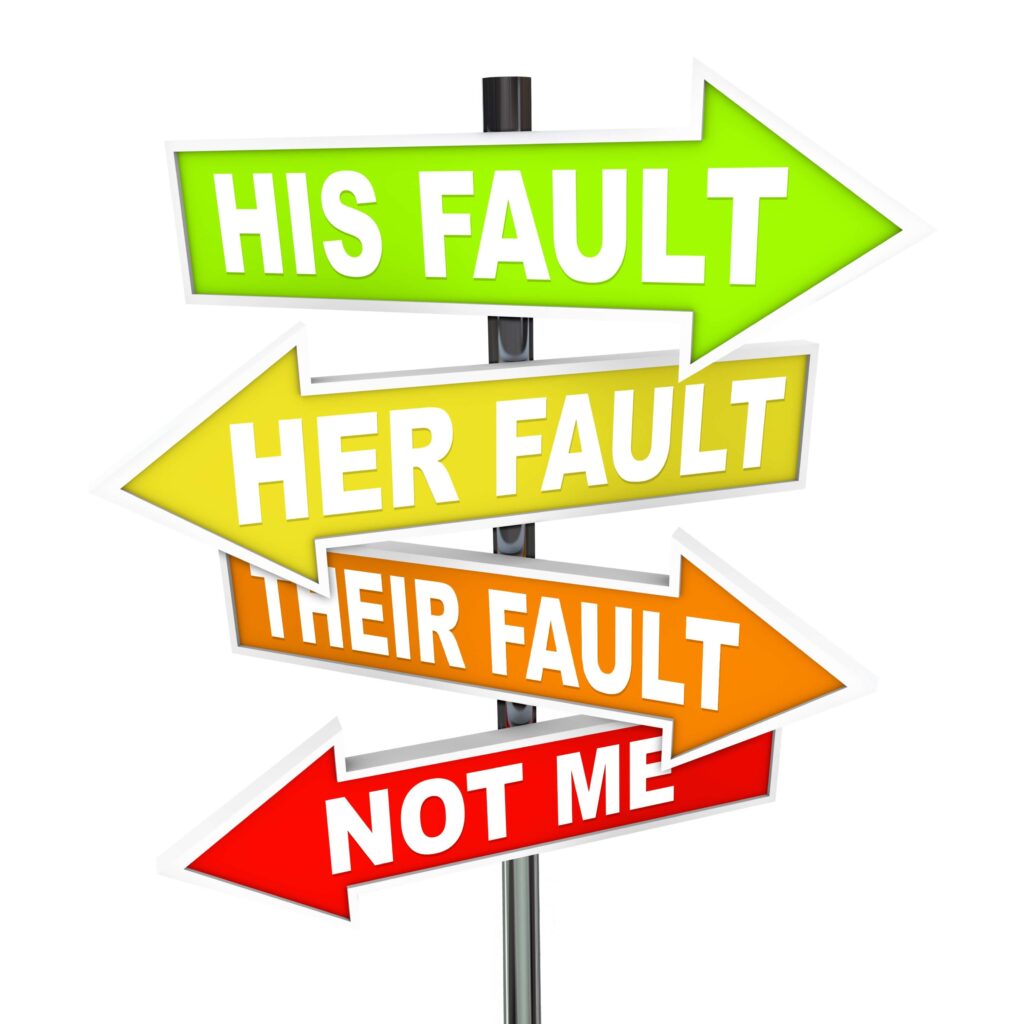Today I facilitated a workshop for one of my favorite AND my longest- running client, Harris County Texas! It was a great group and our topic was dealing with difficult customers. One of the “difficult types” that resonated with so many people was the “Blamer,” that person who doesn’t see their role in situations, doesn’t admit they create their own problems, and overall, thinks that everyone else is the problem, but not them.
Over the years, I’ve discovered that there are two types of people when it comes to the issue of accountability. The first one I respect. The other one makes me want to bust out a big role of duct tape and make them wear it like lipstick!
The first is the accountable person. This is the person who is self aware and understands his or her role and responsibility in a problem situation. The accountable person is someone who learns and grows from every mistake and is less likely to make the same mistakes again.
 The second is the blamer. This is the person who always has an excuse, explanation, or scapegoat upon which they can dump responsibility. This person is the one who is most frustrating for me because he or she never benefits from learning from mistakes and is destined to make the same ones over and over again.
The second is the blamer. This is the person who always has an excuse, explanation, or scapegoat upon which they can dump responsibility. This person is the one who is most frustrating for me because he or she never benefits from learning from mistakes and is destined to make the same ones over and over again.
For example:
- an employer who repeatedly loses great employees
- an employee who is repeatedly “let go”
- a politician who runs for office repeatedly and never gets elected
What’s the common denominator here? (Or should I say “who?”)
In order to learn, grow, and move forward in life, it’s critical that we identify and take responsibility for our actions and even in-actions.
To grow, we must acknowledge and admit:
“I am responsible.”
“You’re right, I made a mistake.”
Although I make jokes about how much blamers bug me, on some level, I’m sad for them too. Because they don’t take responsibility, they never give themselves the opportunity to FIX the problems they create. Therefore they’re doomed to repeat them and lead a life of stunted growth.
The following “red flag” statements may indicate you’re a Blamer and are attempting to avoid responsibility, deflect blame, or worst of all, reverse blame onto someone else.
If you ever feel the urge to give in to your inner Blamer and make any of these statements, stop and think, “What’s my responsibility?” or “What part of this situation can I own?”
1. “You shouldn’t have asked me to do it in the first place.”
I call BS: If that’s the case, then why did you accept the responsibility for the task? Perhaps you should have refused it.
2. “You didn’t give me enough time.”
I call BS: Then why didn’t you negotiate a different deadline BEFORE you missed the one you agreed to?
3. “You didn’t give me enough information.”
I call BS: If you didn’t have enough information, why didn’t you ask for more when you were given the task? Or, if you discovered that later, why didn’t you contact me?
4. “Well, I suppose you never made a mistake.”
I call BS: Let’s not play, “I am the rubber, you are the glue.” We’re not in junior high anymore. Whether someone else has made a mistake isn’t the issue. The issue is yours- address it.
5. “Oh yeah, well you’re__________.”
I call BS: The “Oh yeah, well your momma,” game was over in the 80’s. Whatever someone else may be, as in #4 above, it’s not relevant now. If you had a problem with that person prior to this conversation, you probably had ample opportunity to bring it up before this moment. Now is not the time to become a blamer.
6. “What about (fill in person’s name)? Why don’t you ever say something to him/her?”
I call BS: Turning the conversation to another person, especially someone who is not part of the conversation, is just another deflecting technique like #4 and #5 above. If you have a beef with someone else, take it to him or her. You’re not going to make me the glue or anyone else!
7. “You never liked me.”
I call BS: Really? Are you going to hold your breath until you pass out too? When all else fails, turning the conversation away from behavior to the other person’s feelings about you is a classic technique for redirecting the conversation. How the other person feels about you CAN be addressed if they’re relevant, but only after addressing the concern that person originally brought to your attention.
What are some other signs that we’re probably playing the blame game? Comment and let us know!







